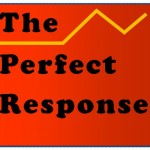 There’s a natural truth to the familiar line, “he was quoted out of context.” It could hardly be otherwise.
There’s a natural truth to the familiar line, “he was quoted out of context.” It could hardly be otherwise.
When we think of communication we often talk of it as a product. “This is what he said,” or “She was surprisingly angry when she explained the problem.” Thinking this way—that we can freeze moments and observe them—is unavoidable. But embedded in the recreation of our communication is a forgotten problem that frequently gets us into trouble.
We tend to forget that communication is actually a process. It exist as a reaction to a world of influences on a speaker that grow more invisible over time. While the words remain static on the page or in a recorded segment, the forces that shaped the speaker’s views drift toward obscurity. We can be like the Broadway producer that lifts the word “Amazing!” out of reviewer’s comments, neglecting the rest of the writer’s judgment that the director showed an “amazing misuse of a talented cast.”
I was reminded of how original meaning drifts far from what a source intended during a viewing of a BBC retrospective program about Ken Russell, the iconic British producer of a number of memorable films about artists and composers. His subject in one project was the English composer Edward Elgar. Everyone recognizes his Pomp and Circumstance March Number 1, which is both the unofficial British national anthem Land of Hope and Glory, but better known to Americans as the solemn march that frequently accompanies graduation ceremonies. Russell reminds us that the piece became popular during World War I, when it was more or less co-opted as a kind of anthem to British imperialism. But its use as a call to battle against Germany troubled the reclusive Elgar.[i] After all, Germany rather than fickle London was where he first gained a foothold as a recognized composer. He was also appalled to have his music associated with the defeat of so important a patron.
We are all like Elgar. Sometimes the music we have created is not what others hear. It’s a common rhetorical necessity to “correct the record” when someone offers a restatement of our views that shows little awareness of why they were made and the circumstances that produced them. “That’s not exactly what I meant” is the common reply, and a preface to contextualized details we may feel compelled to add.
This may be one reasons that reading legal documents that cite case law and precedents can be so annoying. Legal principles must stand equally for all cases ruled to be of the same type. Context counts less than it should. But broad rules tend to obliterate important exceptions, exemptions, and unique circumstances. For example, a law against loitering can be a bludgeon in the hands insensitive local police. On occasion we all loiter, meaning we linger in a public space, usually for reasons that are perfectly harmless.
There is also the common and often sly strategy to use another’s words for our own communication objectives. We can selectively cite an out-of-context phrase simply because it can better demonize another. The words are used as a marker of difference rather than an accurate rendering of someone’s full view. This can be a tactic of a headline writer who is intent on selling a story by making its subject look like a fool.
So there’s a natural truth about the cliché, “he was quoted out of context.” It could hardly be otherwise. In truth, we can usually do a better job of representing the views of others by calling upon the latent historian in all of us. We often have a natural curiosity for the humanizing backstories of others. Fairness to an absent but quoted person demands at least a thumbnail reconstruction of the known circumstances surrounding their words.
[i] BBC, Ken Russell at the BBC, DVD, 2008.
Comments: Woodward@tcnj.edu

